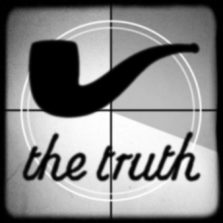
Podcasts are a hidden gem of entertainment. While most everyone has heard of “Serial,” which opened the door to many new podcast listeners, the format hasn’t entered popular culture in the way television or movies have. But podcasts provide a versatile, diverse and free form of entertainment that makes it perfect for almost every consumer. Here’s a few podcasts you might like — ranging from comedy, to politics, to fiction.
Wait Wait… Don’t Tell Me

An NPR show that has a lighter take on the news. The podcast is an hourlong quiz show with a live audience, hosted by comedians Peter Sagal and Bill Kurtis. Each week, a panel of three comedians comes on the show participates in seven segments, some of which also involve listener calls. They also invite a celebrity on to the show each week, who participates in a short interview and a segment called ‘Not My Job,” where the celebrity answers questions about a topic they know nothing about.
Each segment is a unique game, like “Lightning Fill in the Blank,” where host Peter Sagal presents eight fill-in-the-blank questions about recent news to each panelist, which they try to answer in under one minute. The game is designed to make you laughwith the news stories that are often humorous in nature. Panelists fill in blanks with absurd answers that might not be true, but nevertheless make the sentences funny.
The show makes news a lot more digestible — by presenting it through the voices of comedians and applying game theory to news, you’ll forget it’s news at all.
One panelist often steals the show — Paula Poundstone’s unique ability to identify humour in just about any situation makes her quips even more hilarious from the usual comedy that you’d expect from the show.
As informative as a quiz show could be, it lacks a necessary amount of depth most other publications benefit from. It often only takes a surface level look at national news, often with a more liberal bias, and only delves deeper into innocuous stories that add more comedy than news substance to the show.
The Truth

A fiction podcast that takes intriguing short stories to another level. “The Truth” is a biweekly show that’s about 15 to 20 minutes long. The stories tend to be on the darker side, often involving ominous themes and somber plot lines, although there are some lighter stories that are featured in their feed.
Each episode is expertly produced by the show’s host, Jonathan Mitchell. Perfectly placed sound effects paired with voice actors who play their parts with unparalleled conviction bring listeners right into the story.
It’s a unique way of telling a story compared to reading a book or watching a film — you get a more developed sensory experience than reading can give, but the lack of a visual medium allows just enough mystery for your imagination to kick in and fill in the blanks.
The length is also perfect— it tells complete stories in a short amount of time, perfect to keep you entertained while doing a chore or during your drive to school.
One of the best stories from “The Truth” is “That’s Democracy.” It’s a thrilling story of a high school civics class that simulates government in an extreme way. And it’s the subtle things that make the story compelling — the background noises of classroom small talk, the suspenseful music that accompanies the climax, each student’s tone and the quips they make. It’s one of the darkest stories on the show, but it’s definitely a great one to start with.
FiveThirtyEight Politics

A political analysis podcast based on the same principles the FiveThirtyEight website is based on — data-driven journalism. It might not be possible to make politics personal while staying objective, but “FiveThirtyEight Politics” comes close.
The podcast is structured into weekly hourlong podcasts taking a look at the past week’s news. The podcast is a discussion between FiveThirtyEight editor-in-chief Nate Silver, senior political writer Clare Malone, senior political analyst “Whiz Kid” Harry Enten and podcast editor Jody Avirgan.
Most political analysis and punditry in the media is delivered in a structured, formal method, often presenting opinion as truth and not doing much to actually inform consumers.
“FiveThirtyEight Politics” is very different. The conversation feels like one you’re having with a group of friends over coffee, rather than as a distant consumer. Each of the four analysts on the show develops their own personality, that goes beyond their political opinion. Along with their analysis, you hear small tidbits about their daily lives, like the food they like to eat, making you feel more personally connected to each person.
But they never let their personal beliefs get in the way of objectivity. With four different points of view from studied political analysts, a diverse set of opinions are offered that may not directly answer a question but rather pose potential responses that make the issue easier to understand. All of the analysis is rooted in numbers and data. While numbers can be misleading, FiveThirtyEight’s numbers are trustworthy; every major 2016 election prediction model projected a Clinton win, but FiveThirtyEight’s model had higher chances for Trump than anyone else.





